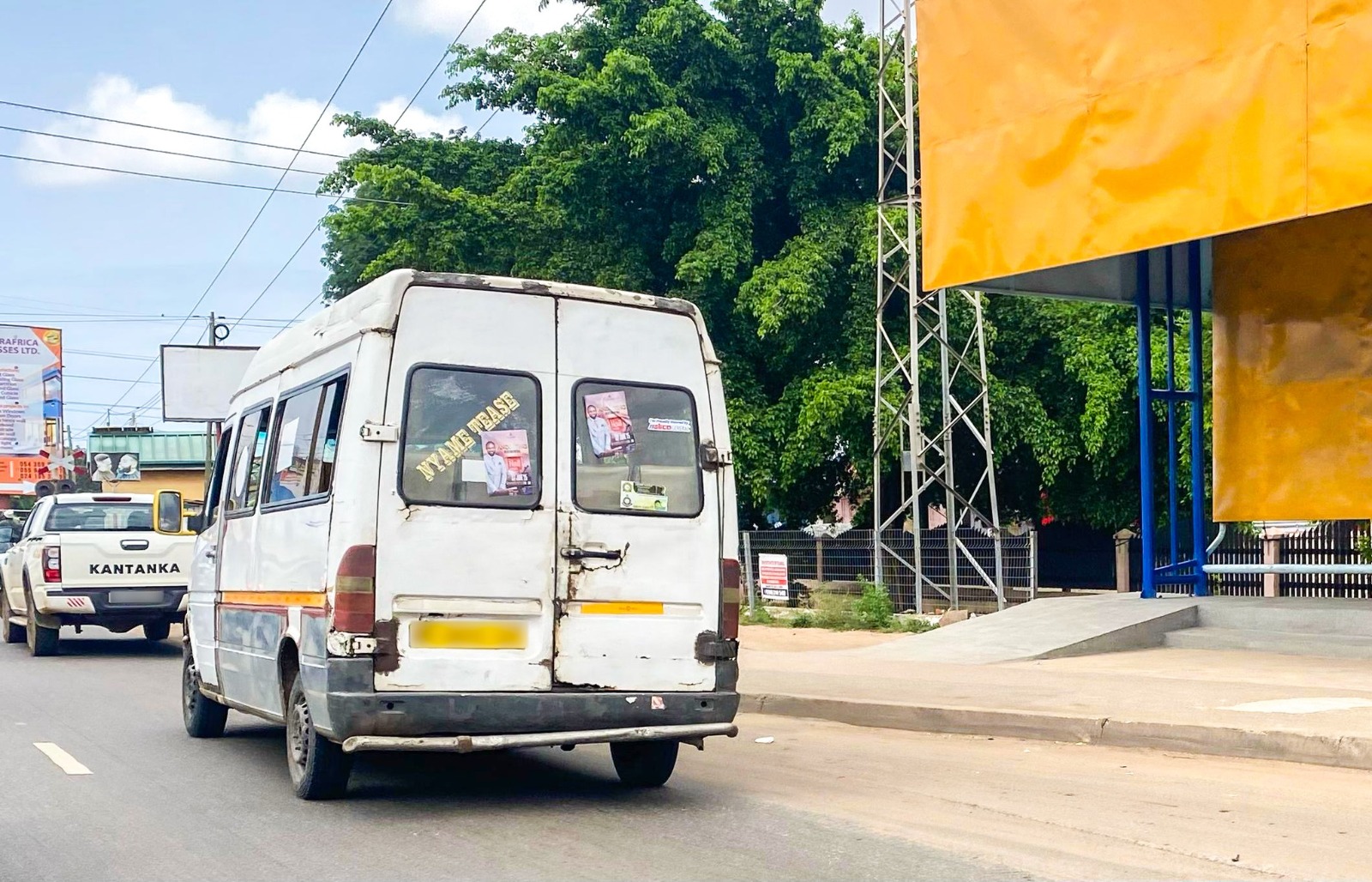
Welcome to Ghana, a country where the best cars aren’t on the roads, but parked in showrooms and dealerships—often waiting years to be sold. Meanwhile, thousands of citizens jostle for space in rickety, smoke-belching commercial vehicles that should have been retired long ago. The contrast is striking. Why is it that brand-new and relatively new vehicles remain idle in dealerships while the majority of Ghanaians rely on aging, unroadworthy cars for daily transport?
During a recent visit to Oberhausen, Germany, I couldn’t help but notice the absence of old, decrepit vehicles on the roads. In my week-long stay, I did not spot a single car in poor condition. Every vehicle appeared well-maintained, efficient, and safe. This left me wondering: how does Ghana enforce roadworthiness tests, and why do we still see so many unsafe vehicles in operation despite the supposed regulation? The connection seems broken, and it begs the question—how can we bridge the gap between the car buyers and the sellers in a way that benefits the economy, improves road safety, and enhances urban mobility?
ARE CARS IN GHANA SIMPLY TOO EXPENSIVE?
One major reason modern, roadworthy vehicles remain out of reach for many Ghanaians is the high cost, driven largely by import duties, taxes, and other levies.According to a 2023 report by the Ghana Revenue Authority, “Import duties on vehicles account for nearly 35% of the total cost of an imported car in Ghana.”
This means a vehicle that sells for $10,000 abroad could end up costing over $13,500 by the time it reaches a Ghanaian buyer.A clearing agent at the Tema Port, who spoke on condition of anonymity, explained that the final cost can be even higher depending on the engine capacity and vehicle type. He noted that Ghana imports mostly second-hand or “accident” vehicles, and the import duties on these can sometimes be three to four times the purchase price.
This is because the import duty is calculated based on the Home Delivery Value (HDV)—typically 50% of the vehicle’s original manufacturer price—regardless of the price actually paid. For example, if a buyer purchases a damaged Hyundai Elantra for $3,000, the HDV is calculated at $10,937.50 (which is 50% of the manufacturer’s value of $21,875). The duty is then charged on this amount, pushing the total cost to around $10,000—more than three times the actual purchase price, and this excludes other port charges.
This pricing structure discourages many private individuals from completing the import process. Meanwhile, car dealers who manage to absorb the cost pass it on to consumers, making even used cars unaffordable for the average Ghanaian. For many Ghanaians, particularly commercial drivers and middle-class workers, these prices are prohibitive. As a result, they resort to buying old, Ghana used vehicles, many of which are deemed unfit for use in other countries.
This creates a dangerous situation where unsafe vehicles continue to dominate our roads, increasing the risk of accidents and environmental pollution.
Dr. Kwame Asamoah, an economist specialising in transportation policy, explains, “Ghana’s high vehicle import duties are not just stifling the auto industry but also preventing the renewal of our public transport fleet. If we had a system that made newer, fuel-efficient cars more affordable, we could significantly improve both road safety and environmental standards.
”THE ROLE OF GOVERNMENT & POLICY FAILURES
The government has a crucial role to play in fixing this anomaly. One approach would be to introduce incentives that make vehicles more affordable, particularly for commercial drivers. In some countries, governments provide tax breaks or subsidies to transport operators who purchase newer, fuel-efficient vehicles. For example, Singapore’s Vehicle Emissions Scheme provides financial rebates for buyers of eco-friendly vehicles while imposing additional costs on those who purchase high-emission cars.
Ghana could adopt a similar approach by reducing import duties on safer, energy-efficient cars while increasing levies on older, high-emission vehicles. This would encourage buyers to opt for modern, roadworthy cars while discouraging the continued importation of aging, high-pollution vehicles.
Additionally, the government must improve the effectiveness of roadworthiness inspections. Currently, many vehicle owners obtain their Road Worthy Certificates through corrupt means without actually meeting the required safety standards. The National Road Safety Authority (NRSA) has repeatedly highlighted this issue, yet enforcement remains weak.A 2022 study by the NRSA found that “Over 40% of vehicles that pass roadworthiness tests in Ghana would fail similar tests in Europe or North America due to safety concerns.” This exposes the flaws in the system and suggests that roadworthiness certification in Ghana is often more of a formality than a genuine safety check.
THE ROLE OF CAR DEALERS & THE ISSUE OF GREED
Another key factor in this problem is the pricing strategies of car dealers. In many cases, dealers inflate prices to maximise profits, even when it means that vehicles sit unsold for years. Unlike in other countries where dealerships offer financing options, trade-in programs, and flexible payment plans, Ghana’s car market remains largely cash-driven. This limits access to newer vehicles for those who cannot afford to pay upfront.
Car dealership owner Richard Boateng acknowledges this challenge: “The system is not friendly for both buyers and sellers. We often have to price vehicles high because of the high costs involved in importation. However, if the government introduced a system where buyers could access affordable car loans, more people could buy cars, and we wouldn’t have to keep vehicles in our yards for years.
”In more developed markets, financing options allow buyers to spread payments over several years, making it easier to afford newer cars. In Ghana, however, high-interest rates on car loans (often exceeding 25%) make this an unattractive option for most people. If banks and financial institutions introduced better financing schemes with lower interest rates, more commercial drivers and workers could afford newer vehicles, ultimately reducing the number of old, unsafe cars on the road.
CONNECTING BUYERS & SELLERS FOR A MORE DECENT SOCIETY
The solution to this issue requires a multi-stakeholder approach. The government must review vehicle import duties and create policies that encourage the purchase of newer cars. Financial institutions should work with car dealerships to introduce better financing options for buyers. Additionally, stricter enforcement of roadworthiness standards must be implemented to ensure that vehicles on Ghana’s roads meet safety regulations.
Beyond policy, the attitude of car dealers must change. Greedy pricing strategies that keep cars in showrooms for years help no one. If dealers focused on volume sales rather than exorbitant profit margins, more people would be able to afford better vehicles, creating a win-win situation for both sellers and buyers.
Addison Boateng, a Bolt driver currently operating under a work-and-pay arrangement, shares that he and the vehicle owner had to settle for a Ghana-used car because purchasing a brand-new or imported vehicle was financially out of reach.According to him, the payment agreement requires him to pay double the cost of the vehicle. He acquired the car for GHS 80,000.00 and is expected to pay back GHS 160,000.00 over a two-year period, with weekly payments of GHS 1,000.00.
Addison believes that instead of allowing vehicles to remain parked in showrooms and garages for years, car dealers should offer more flexible payment plans that make it easier for drivers to acquire vehicles through hire-purchase arrangements.
“This isn’t even a brand-new vehicle, yet I’m able to pay GHS 1,000.00 a week,” he said. “If I had access to a new car with a proper plan, I could easily manage GHS 1,500.00 a week and complete payment—rather than letting the vehicles sit there unused.” Ultimately, Ghana needs a transportation revolution. The sight of broken-down trotros on the roadside should not be the norm. Our roads deserve better, our citizens deserve better, and our economy would benefit from a well-structured automotive industry.
As Dr. Asamoah rightly puts it, “A country’s progress is visible on its roads. If we can fix our vehicle economy, we will fix more than just transportation—we will fix safety, business, and national development.”It’s time for Ghana to move beyond this paradox where the best cars remain in showrooms while citizens struggle in unsafe vehicles. It’s time for change.
Written by Prince Kojo Asare (Head of News, Pent Media Centre)












